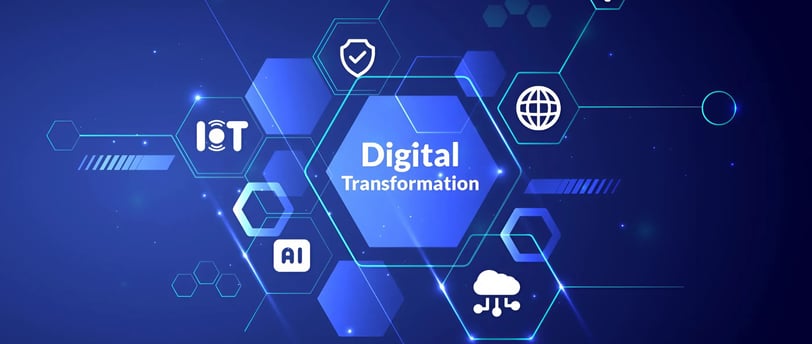
AI-POWERED MARKETING AUTOMATION: A NEW PATH FOR BUSINESS OPERATIONS
4/5/20254 min read


In the digital age, businesses face increasingly intense competitive pressure.
To survive and grow, they must seek effective solutions to optimize their marketing operations. Marketing automation is the answer to these challenges. By applying Artificial Intelligence (AI), companies can automate many repetitive tasks, save time and manpower, and increase the effectiveness of their marketing campaigns.
What is Marketing Automation?
Marketing automation refers to the use of software and technology to automate marketing activities, helping businesses save time, increase efficiency, and personalize customer experiences.
For example, instead of manually sending bulk emails or analyzing data, automation tools can perform these tasks more accurately and quickly.
Why is AI Marketing Automation Important?
To understand the importance of marketing automation for businesses, let’s first explore the limitations of traditional marketing methods.
The Current Situation and Challenges of Traditional Marketing
Traditional marketing—such as TV, print, radio advertising, and direct marketing—used to be the primary means of reaching customers.
However, with the rapid advancement of digital technologies and changing consumer behaviors, traditional marketing faces several major challenges:
Difficult to measure effectiveness: It's hard to accurately assess the success of traditional campaigns, making it difficult to evaluate ROI (Return on Investment).
High costs: Traditional marketing campaigns are often expensive, especially television and print ads.
Limited targeting capabilities: Reaching the right target audience precisely is challenging, leading to wasted resources.
Lack of interaction: Traditional channels make it difficult for customers to engage directly with businesses, reducing campaign effectiveness.
Challenges in the Modern Business Landscape
Intense competition: Increasing market competition forces businesses to find new ways to stand out and attract customers.
Changing consumer behavior: Customers are smarter and have more options. They seek personalized and interactive experiences.
Rapid technological development: The rise of digital technology has introduced many new marketing channels, requiring businesses to adapt quickly.
The Role of AI in Marketing Automation
Artificial Intelligence (AI) is transforming how businesses market their products and services. Here are some key benefits of applying AI in marketing automation:
1. Enhancing Marketing Efficiency
AI helps automate repetitive tasks like sending emails, analyzing data, and adjusting ad campaigns. Marketers can then focus on creative and strategic tasks.
According to Gartner, companies using AI have increased marketing performance by up to 20%.
2. Elevating Customer Experience
AI enables personalized customer experiences by analyzing individual behavior and preferences.
For example, Amazon uses AI to recommend products based on shopping history, increasing conversion rates.
3. Saving Costs and Reducing Workload
Automation of manual tasks saves both labor costs and time. AI also optimizes ad budgets by avoiding waste on ineffective channels.
A Forrester report states businesses can save up to 30% on marketing costs through AI.
4. Faster, More Accurate Decision-Making
AI analyzes vast amounts of data quickly and accurately, helping marketers make better strategic decisions.
For instance, AI can predict consumer trends, enabling timely product and marketing adjustments.
5. Creating New Marketing Approaches
AI opens up innovative marketing formats such as chatbots, voice marketing, and interactive ads—offering better customer engagement and unique experiences.
6. Boosting Revenue and Profit
All of the above benefits contribute to increased business revenue and profitability.
McKinsey reports that companies using AI to personalize customer experiences can boost revenue by up to 15%.
AI Applications in Marketing Automation
AI is revolutionizing marketing, significantly improving the automation and effectiveness of operations. Businesses need to adopt AI in marketing automation for the following reasons:
Speed: AI processes data and executes tasks far faster than humans.
Accuracy: AI makes data-driven decisions, minimizing errors.
Personalization: AI delivers unique and relevant customer experiences.
Efficiency: AI boosts campaign effectiveness and reduces costs.
Competitiveness: Businesses that don’t adopt AI risk falling behind.
How AI Optimizes Marketing Activities
Personalized Customer Experience
Understanding customer behavior: AI analyzes shopping history, website activity, and social media interactions to build detailed customer profiles.
Personalized product recommendations: Based on customer profiles, AI suggests suitable products/services, increasing conversion rates.
Customized marketing content: AI generates tailored content (emails, banners, posts) for different customer segments to boost engagement.
Ad Optimization with AI
Target accuracy: AI identifies the right customer segments, reducing ad spend waste.
Budget optimization: AI monitors campaign performance and automatically reallocates budget for maximum results.
Creative ad generation: AI creates multiple ad versions and identifies the most effective ones.
Automating Repetitive Tasks
Automated email campaigns: AI sends welcome, promotional, and customer care emails, saving time and resources.
Chatbots: AI-powered chatbots provide 24/7 customer support and purchasing assistance.
Social media management: AI schedules posts, replies to comments, and interacts with users across platforms.
Data Analysis and Forecasting
Big data analysis: AI processes vast data sets to detect trends and patterns.
Sales forecasting: AI predicts sales to help businesses plan production and operations.
Sentiment analysis: AI interprets customer emotions from reviews and comments to improve products and services.
Content Creation
AI content generation: AI writes basic content such as product descriptions or short blog posts based on keywords.
AI image generation: AI creates marketing images and videos from specific inputs.
Building an Effective AI Marketing Automation Strategy
Skyward recommends the following six steps for businesses to implement AI-powered marketing automation:
1. Define Clear Goals
Identify specific objectives—whether it's improving conversions, customer engagement, reducing costs, or increasing revenue. Clear goals help focus efforts and measure success accurately.
2. Build Customer Personas
Understand your target audience in terms of demographics, buying behavior, preferences, and internet usage habits. This helps create personalized and effective marketing campaigns.
3. Choose the Right Automation Tools
Select tools that match your business size, budget, and goals. Popular tools include HubSpot, Marketo, Mailchimp, ActiveCampaign… These tools help automate emails, segment customers, and build marketing workflows.
4. Develop a Strategic Plan
Map out which processes to automate, set automation rules, and schedule campaigns. A detailed plan ensures smooth and efficient execution.
5. Train Your Team
Staff training is crucial to effectively use automation tools. Employees should be equipped with knowledge on how to use tools, analyze data, and optimize campaigns.
6. Monitor and Measure Performance
Track key metrics such as open rate, click-through rate, conversion rate, and revenue. Use this data to adjust and improve your strategy over time.
Challenges and Solutions in AI Marketing Automation Implementation
Implementing AI-powered marketing automation still comes with hurdles. Skyward highlights common challenges and suggests solutions:
Challenge Solution Lack of AI understanding Conduct training sessions to raise awareness; consult AI experts for guidance. Data quality issues (This part was cut off in your input—please provide the rest if you'd like a full translation of this section.)
